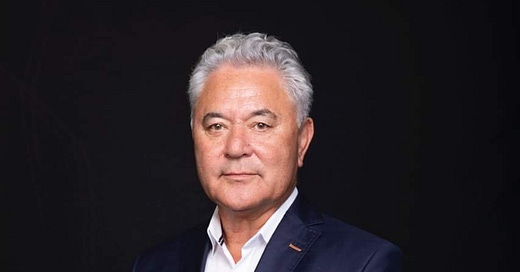Vaccine Rollout: Māori are behind because the system was built for Pākehā / John Tamihere
I am not an expert or a scientist.
I am however, like most average Kiwis, educated, connected and not as stupid as some would have you believe.
I am lucky to have a superb data analytical unit at my disposal and access to the best Māori expertise that global schools of learning can produce.
In addition I have been blessed to be mandated to commence and oversee multiple community design programmes that have worked in spite of and despite of, legions of bureaucrats blocking the way.
So here is an average person’s take on Covid Aotearoa, as of today.
There is no doubt that vaccines reduce infection and transmission rates, absolutely, no doubt. Equally, there is no doubt that those vaccinated are still able to transmit Covid.
Vaccinated people will carry Covid. Most vaccinated carriers will be asymptomatic. They will have no coughing, no temperature, no nausea, and no lack of energy, no sore throat and the like.
The problem we have is in the mantras that are touted to be truisms.
For example, follow the science, listen to the experts.
So where are the scientists and experts in regard to not just civil liberties but in raising their voices against the inequity of the vaccine rollout that left some communities knowingly vulnerable, high and dry?
Very rarely are there absolutes in any profession.
It does not matter who the expert or scientist is.
They must all join the data points.
That calls for opinion, and once subjective opinion comes into play science and expertise goes out the window.
Scientists and experts are part of our community.
They have political views and they vote.
Their upbringing helped shape their worldview and as a consequence, their opinion on the facts helped shape the narrative whether the facts can be contested or not.
Of course they speak the truth, but not the whole truth and nothing but the truth.
Put another way history does not teach us, historians tell us.
Politicians take expert advice all the time, regardless of how good the advice is, it might or might not suit their political narrative.
Following these mantras means that we have to do whatever we are told to get our freedoms back.
Those that are not vaccinated are sabotaging the team of 5 million.
I accept unequivocally that as many people as possible should be vaccinated. But, in a free and democratic society it is not for me to demonise or vilify those that are not vaccinated.
Just because a system was designed for mainstream New Zealand to the exclusion of Māori expertise and leadership, does not mean Māori are lazy, backward or in opposition to vaccines.
The system achieved what it always does, first class treatment for mainstream, second class treatment for Māori.
That is why we are scrambling late in the day to lift Māori vaccination.
The Government knew in February 2020 and was reminded constantly by us that a targeted Māori vaccination programme at the start of vaccination rollouts was essential.
A number of the Government’s experts aligned with the political leadership and supported a non-targeted Māori rollout.
Why? Because they did not want to be seen to be preferring brown folk to white folk.
Without intending any disrespect, I quote another observer: “There are two kinds of doctors. A GP who knows bugger all about a lot and a specialist that knows a lot about bugger all.”
So let’s cut straight to the chase.
High vaccine percentage rates help smooth the impact on our health infrastructure so it does not collapse.
Vaccine percentage rates curb the brutality of contracting Covid.
Vaccine percentage rates are the new proxy for political success, they are not about equal access to health services or vaccines.
Vaccine percentage rates are a simple, non-scientific target provided as a segue into how many deaths will be politically acceptable.
So in this First World Country, the death rate for the poor and vulnerable, in our Third World suburbs, will be the toll that tells the sorry tale.
John Henry Tamihere is a New Zealand politician, media personality, and political commentator. He was member of Parliament from 1999 to 2005, including serving as a Cabinet minister in the Labour Party from August 2002 to November 2004.




